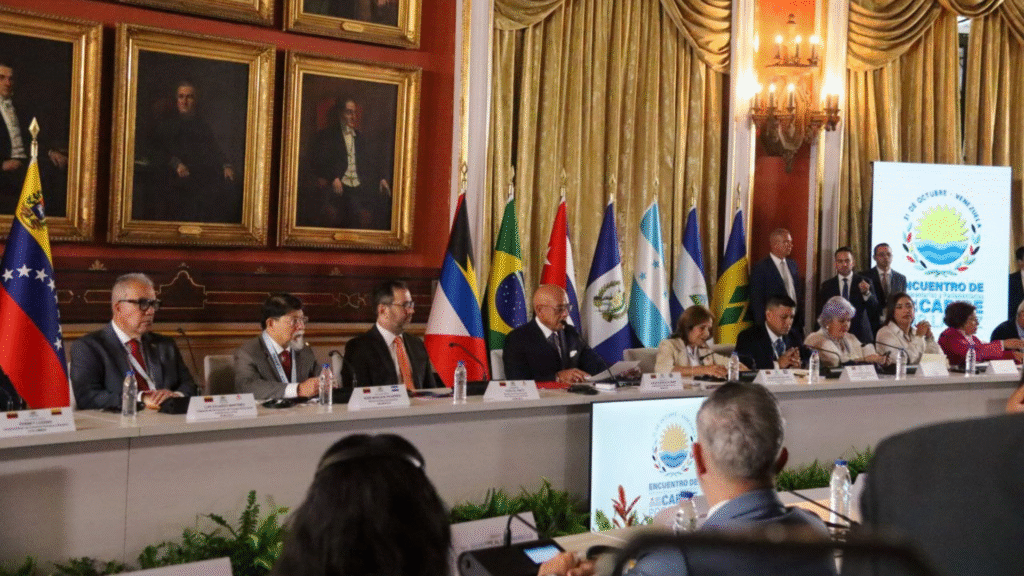Two years into his term, Colombian President Gustavo Petro has been fighting a battle against maneuvers by the National Electoral Council, which he describes as an attempted coup. For weeks, the center-left leader has denounced an investigation by the Council into alleged campaign fundraising irregularities, claiming it is a political move aimed at removing him from power before his term ends on August 7, 2026. Petro has called for international solidarity and popular mobilization to defend his mandate.
According to Petro and his allies, the National Electoral Council’s investigation is part of a broader strategy of politicized legal warfare—”lawfare”—a tactic used by right-wing opposition forces across Latin America to weaken popular governments. He compares the situation to what happened with leaders like Lula, Dilma Rousseff, Cristina Fernández de Kirchner, Evo Morales, and Ecuador’s Citizen Revolution leaders, Rafael Correa and Jorge Glas. Petro refers to this as the fourth coup attempt against him since taking office in 2022.
As Colombia’s first left-wing president in over a century, Petro’s government has faced significant resistance from dominant social classes and reactionary political sectors. Public opinion is divided over the nature of the crisis. Surveys show that 44.8% of Colombians believe there are groups attempting to overthrow Petro, while 39.5% think he is exaggerating by framing the current investigation as a coup attempt. This divide is partly due to a momentarily negative evaluation of his administration: 58.3% of Colombians disapprove of his leadership, citing low economic growth, corruption allegations, and limited social policy results.
The National Electoral Council’s investigation into events that allegedly occurred before Petro’s presidency cannot, on its own, result in his removal from office. As an administrative body, the NEC can investigate electoral campaigns, but any consequences would apply to the political party and campaign organizers, not the sitting president. According to Colombian law, the power to remove a president lies with the House of Representatives and the Senate. However, it appears the NEC’s actions are part of an orchestrated effort to create a political environment that could lead to a parliamentary inquiry with the power to censure or condemn the president.
Petro has secured support from regional leaders like Nicolás Maduro (Venezuela), Luiz Inácio Lula da Silva (Brazil), and Luis Arce (Bolivia). This backing from left-wing South American governments has provided him with momentum to continue his fight and successfully complete his term. He has reinforced his progressive image by pushing for peace with remaining guerrilla groups, advocating for social reforms, and, in some cases, adopting a more assertive foreign policy—particularly regarding Palestine, where he condemned genocide and severed ties with Israel.
The destabilization campaign led by right-wing sectors continues, with the outcome still uncertain. However, Petro has demonstrated resilience, refusing to stay silent in the face of what he views as baseless accusations. Similar to past efforts aimed at discrediting other left-wing leaders, he argues that these attacks are part of the same “lawfare” and “soft coup” strategies used by right-wing forces across Latin America.
Petro remains confident in his ability to mobilize the public, believing that collective action will be the decisive factor in defending his presidency. He relies on a broad network of social movements that oppose the country’s anti-democratic and anti-social regression. These movements argue that Petro’s policies unsettle Colombia’s dominant elites and conservative parties. Petro has introduced three key reforms aimed at restructuring the state: pension reform, healthcare reform, and tax reform. His administration is pushing to raise taxes on large fortunes and to universalize healthcare and pensions, marking significant changes his government hopes to implement. It is hoped that these reforms will prevent the success of tactics used to undermine left-wing governments across Latin America.
*Ze Reinaldo Carvalho is a journalist, member of the Communist Party of Brazil’s Central Committee and National Political Commission, and International Editor of Brasil 247.
This article has been translated from Portuguese by Kawsachun News. Read it in its original Portuguese here.








